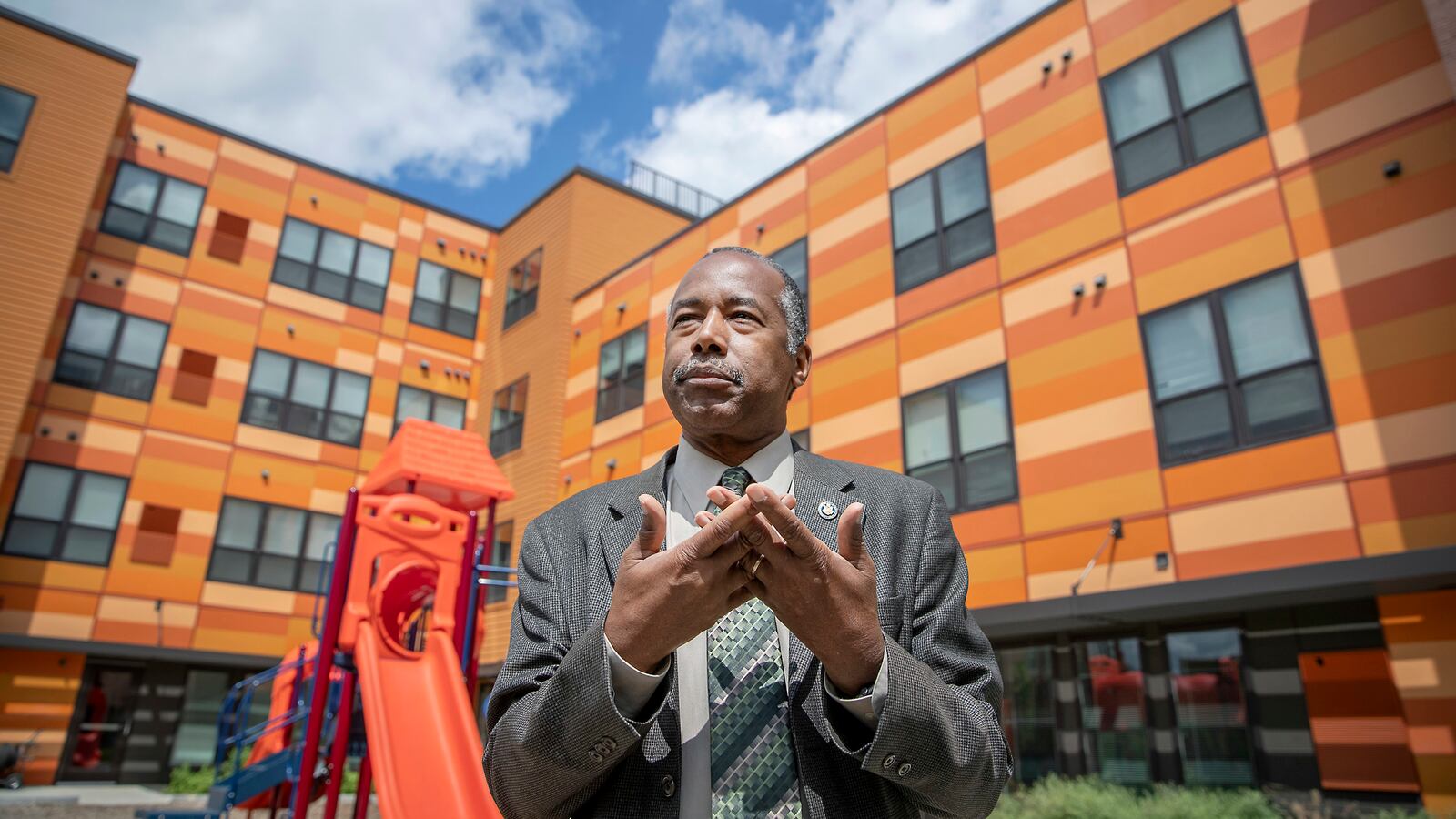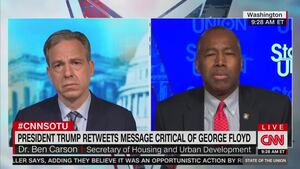The nationwide demonstrations for racial justice in the wake of George Floyd’s death have attracted hundreds of thousands of people to the streets—including some surprises, like Sen. Mitt Romney (R-UT), who joined a march in Washington last Sunday.
But don’t expect to see Ben Carson out there anytime soon. In an interview with The Daily Beast on Monday, the Secretary for the Department of Housing and Urban Development—and the only black member of Donald Trump’s Cabinet—didn’t totally rule out the idea of participating in a Black Lives Matter demonstration, but said: “I think I have other things that probably require my presence and attention.”
Carson then chided the group for supposedly being uninterested in the violence unfolding in cities like Chicago—where 24 people died last weekend in shootings—echoing a common response to the movement from conservatives, who have largely preferred to deflect focus away by asking activists why they aren’t marching against other forms of violence. Black Lives Matter supporters have, of course, joined protests against gun violence in recent years.
“I would like to take the opportunity to say to the Black Lives Matter group: Please, concentrate on some of the horrendous things that are going on in places like Chicago,” said Carson. "Is that an important thing or is it not? Do we just not even care about that?"
“I would be much more inclined to march with them,” continued Carson, “if they were also concerned with all those people dying in other places around the country."
However, Carson did acknowledge that the protests of police brutality and injustice have raised issues that President Trump and policymakers in Washington can’t ignore. Though he declined to say there was systemic racism in police departments, saying only that racism “does exist and it does need to be dealt with.”
“I’m sure there are some police departments that perhaps have a problem that is pervasive,” said Carson. “I don’t think that is generally the case. It does give us an opportunity to ask what are some of the policies that are hurting us as a society.”
In terms of specifics on that front, Carson emphasized tackling “low-hanging fruit”—for example, making it harder for cops with records of misconduct to transfer to police departments in other jurisdictions. He also motioned to the problems in police unions—a major target for reformers due to their aggressive protection of cops accused of wrongdoing—saying “they have to recognize they also have a responsibility to the public at large,” though he didn’t divulge specific reforms.
Asked about proposals in Congress and in cities nationwide to ban the style of chokehold that killed Floyd, Carson said, “If you can’t come up with a good reason why you should be choking people. It’s something to talk about.”
Carson, the famous Baltimore neurosurgeon who became a conservative activist and GOP presidential candidate in 2016, is one of a few original members of Trump’s Cabinet remaining in office. Perhaps the most high-profile black supporter and ally of the president, Carson has been making the media rounds in recent days, talking up the administration’s record on issues of race amid a moment of profound national upheaval.
Though Trump is historically unpopular among black voters—a May poll from Quinnipiac University found that just 3 percent of them support him over Democrat Joe Biden—he and his campaign have fixated on selling the idea that his presidency has delivered for them, largely on the basis of low unemployment rates in minority communities. Whatever appeal that sales pitch had has largely been rendered moot by the economic devastation of the coronavirus pandemic.
But Carson has defended those results, talking to The Daily Beast about the president’s passage of criminal justice reform and support of an “opportunity zone” policy designed to provide tax breaks to minority business owners. An August 2019 investigation from The New York Times found that policy has so far largely advantaged wealthy real estate developers.
Asked if race relations in America have improved under Trump’s presidency, however, Carson wouldn’t say definitively. “I don’t know that they have or have not,” he said. “A lot depends on who you talk to. I must admit I haven’t seen a lot of problems here where I’m working.” Perhaps, said Carson, the president “says some things that sometimes rankle people. I understand that.”
“The important thing is, obviously, to demonstrate understanding of the issue, why is it that so many people are upset—I think that's very important,” said Carson. “I talked to him about that, he does have an understanding. But he also has the duty, as the commander in chief, to assure people that chaos is not going to reign supreme.”






